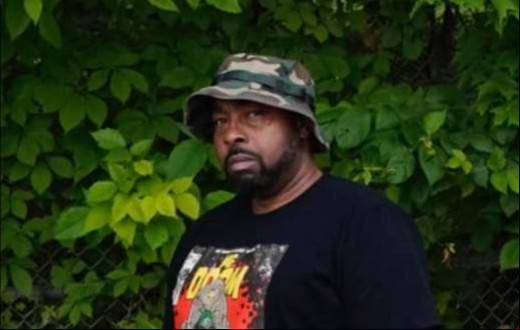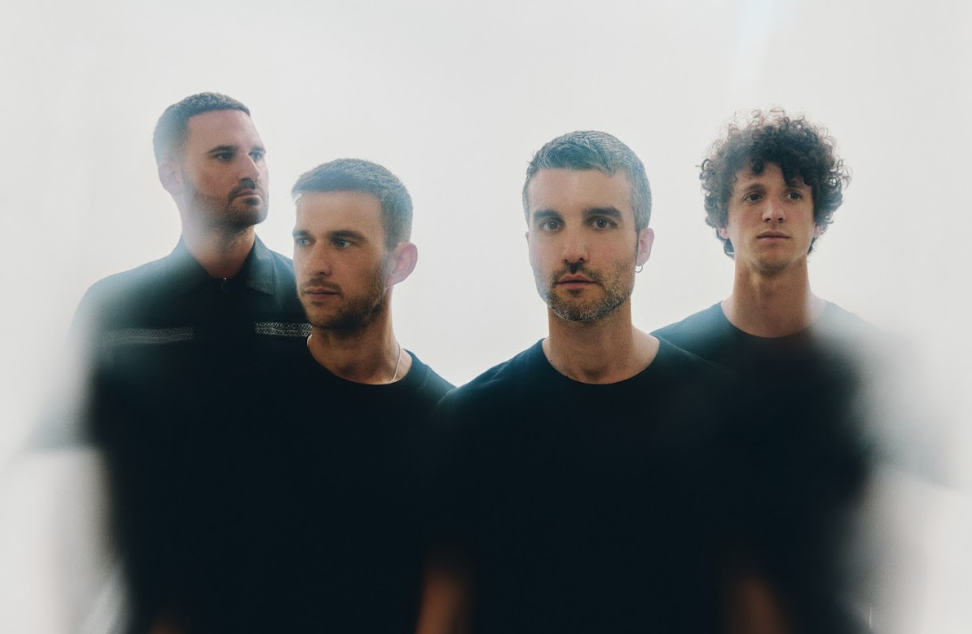We Speak Music
Pittsburgh’s Messiah Of Madness returns with new EP!

Out of the shadowy recesses of “Steeltown” (aka Pittsburgh, PA) a dark musical force known as The Messiah Of Madness has been crafting some of the most grimey boom-bap around today. His four-track offering, You Already Know (to drop digitally on June 28th via Dominion Hill Records) is titled such, as the artist relates “if you ever listened to my music, you already know that everything I put out is hard, raw and menacing, this EP is held to the same standard.”
On the mic, The Messiah is gruff, disrespectful and homicidal with his words, his producer alter-ego Tone Fultz (who produces three of the four tracks on this release) is equally adept at creating the type of raucous instrumentals that made Wu-Tang and Mobb Deep touchstones of the 1990’s. The one non Tone Fultz produced track on the release “Crown Royal Bag” is provided by hometown legend Big Jerm, who has also laced tracks for Mac Miller, Wiz Khalifa and Snoop Dogg among others.
Preview the EP here: https://music.apple.com/us/album/you-already-know-ep/1750087586
This is the first new Messiah Of Madness since last year’s Monstrosity LP (Global Sounds/MNRK) but prior to that was a twelve year break between 2011’s The Ordeal LP and Monstrosity. This was mostly due to Tone Fultz keeping busy on the production side. Some of his recent work includes “Get On Your Knees” the new single from Wu-Tang / Theodore Unit affiliate Solomon Childs as well as a forthcoming EP with Kinetic 9 of Killarmy.
We Speak Music
Imbermind Unveils Dazzling Debut Album Never Ending

Imbermind, the cutting-edge musical collective pushing the boundaries between electronic purity and alternative pop, has officially released their hotly anticipated debut album, Never Ending. A bold and immersive sonic experience, the 11-track album is now available on all major streaming platforms—cementing the group’s arrival as one of the most exciting new acts in contemporary music.
Crafted by the visionary minds of Edu Imbernon, Luis Clemente, Nico Casal, and Álvaro Monreal, Never Ending is an electrifying journey through sound. Fusing the shimmering textures of synth-pop, the pulse of indie dance, and the emotional gravity of alternative pop, the album stands as a fearless artistic statement. With sweeping cinematic moments and introspective lyrical depth, Never Ending evokes comparisons to icons like Depeche Mode, Pet Shop Boys, RÜFÜS DU SOL, Moderat, Bicep, and Metronomy, yet retains a distinct identity all its own.
Imbermind first turned heads with their stunning official remix of Depeche Mode’s “Wagging Tongue”, taken from the legendary band’s 2023 album Memento Mori. The rework offered a masterclass in sonic reinvention—paying homage to the original while introducing a layered, contemporary soundscape that marked the group as one to watch.
That promise only deepened with the release of “Thousand Miles” in December 2024. The emotionally charged debut single explored resilience and perseverance, earning critical acclaim for its meticulous production and haunting vocal performance. The track became a signpost for the sonic ethos of Never Ending—a world where emotional storytelling meets expansive electronic innovation.
At the heart of Imbermind’s appeal is the fusion of four distinct artistic voices. Edu Imbernon, a global DJ and producer with a decade-spanning career, brings festival-tested energy and production finesse. Nico Casal, a classically trained pianist and celebrated film composer, injects cinematic depth and narrative flow. Luis Clemente adds versatility as a multi-instrumentalist and indie-electronic producer, while Álvaro Monreal, the unmistakable voice of the project, channels emotional resonance and acoustic mastery.
Together, the quartet creates music that defies easy categorization. Never Ending is not just an album—it’s an experience. From the euphoria of club-ready anthems to tender, stripped-down moments of reflection, the record invites listeners into an ever-shifting emotional landscape that feels both fresh and timeless.
As Imbermind takes their place on the global stage, Never Ending stands as a testament to their shared vision: fearless, genre-defying, and deeply human. Whether you’re a fan of forward-thinking electronic music or just discovering the genre, Imbermind is a name you won’t forget.
INSTAGRAM | TIKTOK | BANDCAMP | RESIDENT ADVISOR | YOUTUBE | SPOTIFY
-

 We Speak Volleyball6 days ago
We Speak Volleyball6 days agoBuilt for the Pressure, Wired to Compete: Loretta Duby’s Passionate Pursuit of Purpose Through Volleyball
-

 We Speak Track And Field1 week ago
We Speak Track And Field1 week agoPurpose in Every Throw, Anchored by Faith: Keira Frye’s Path to Greatness
-

 We Speak Boxing1 week ago
We Speak Boxing1 week agoGloria Bautista “The Pink Panther”: Calm Power In The Super Flyweight Division
-

 We Speak Soccer2 days ago
We Speak Soccer2 days agoNo Entry Allowed: How Austin Fortner Is Becoming a Standout Keeper with Confidence and Control

